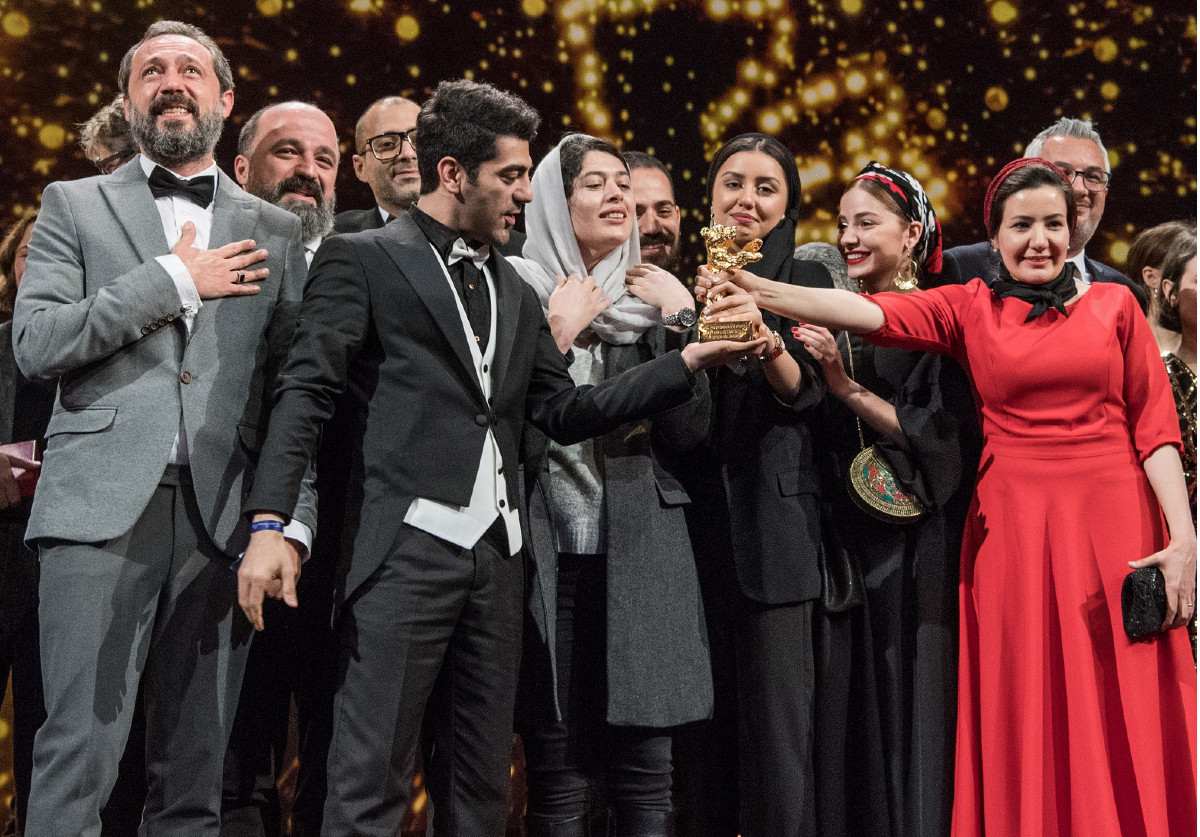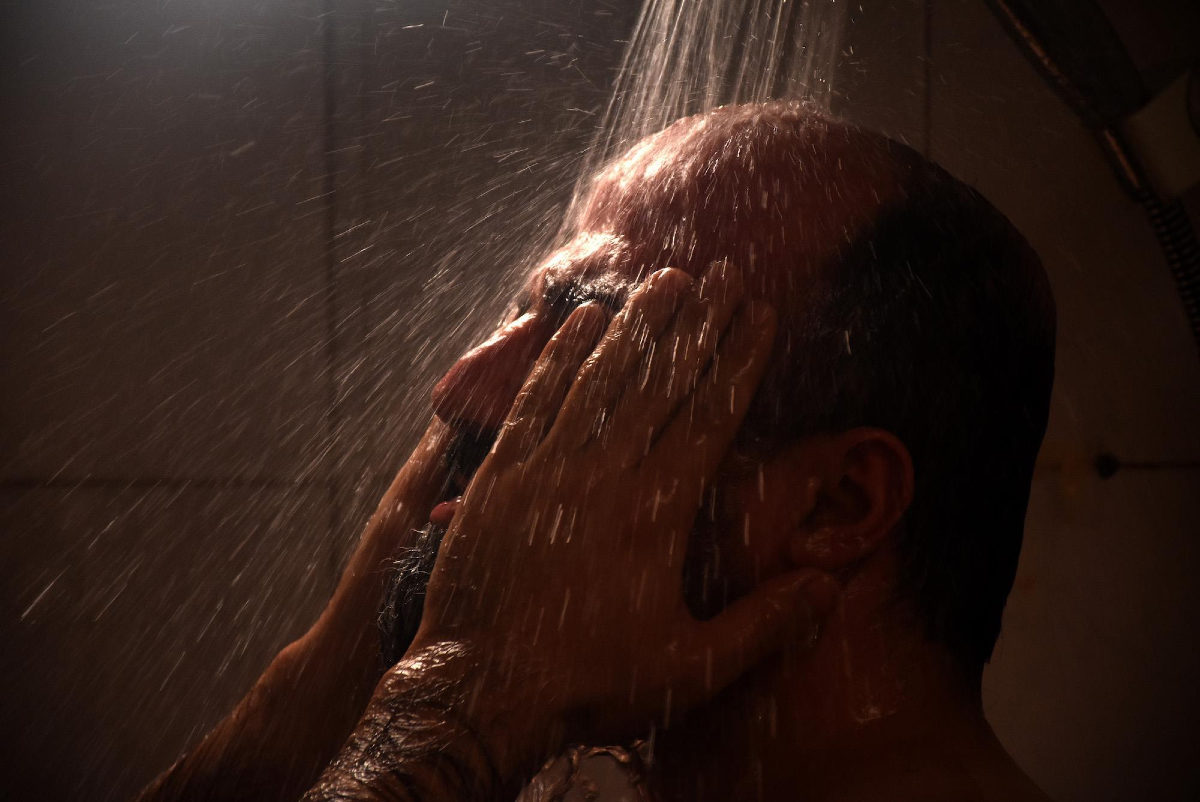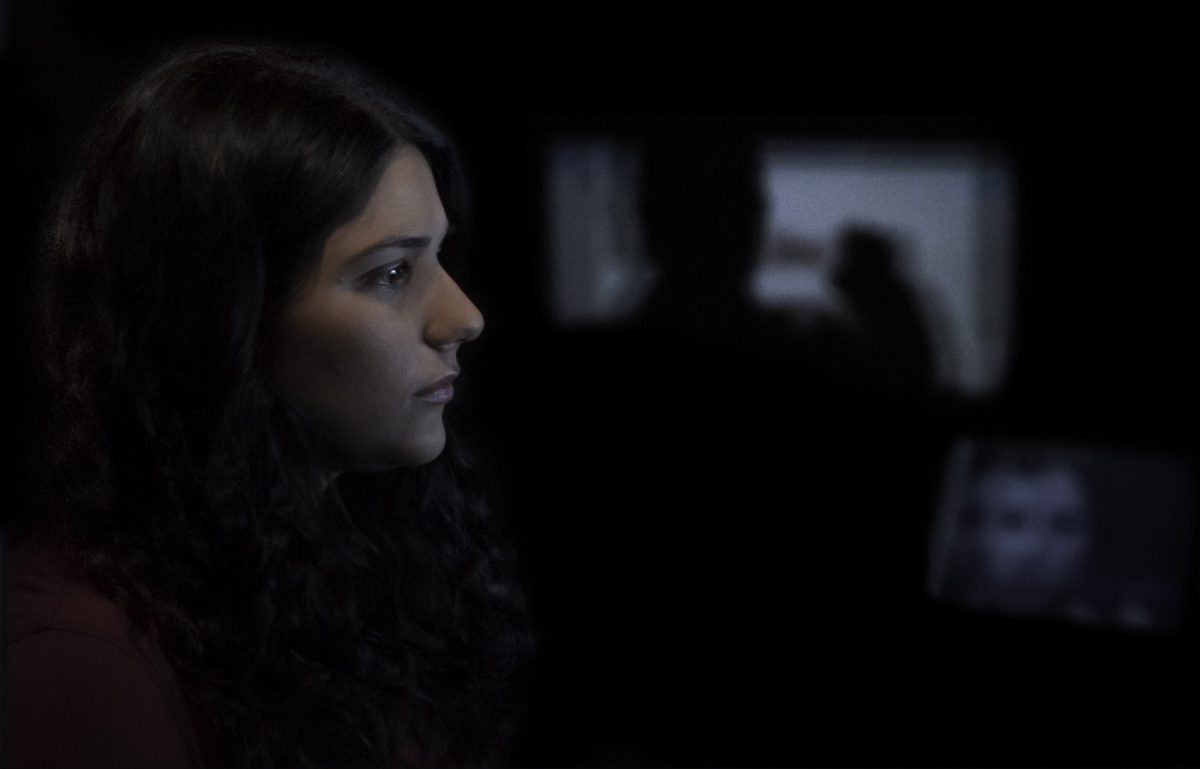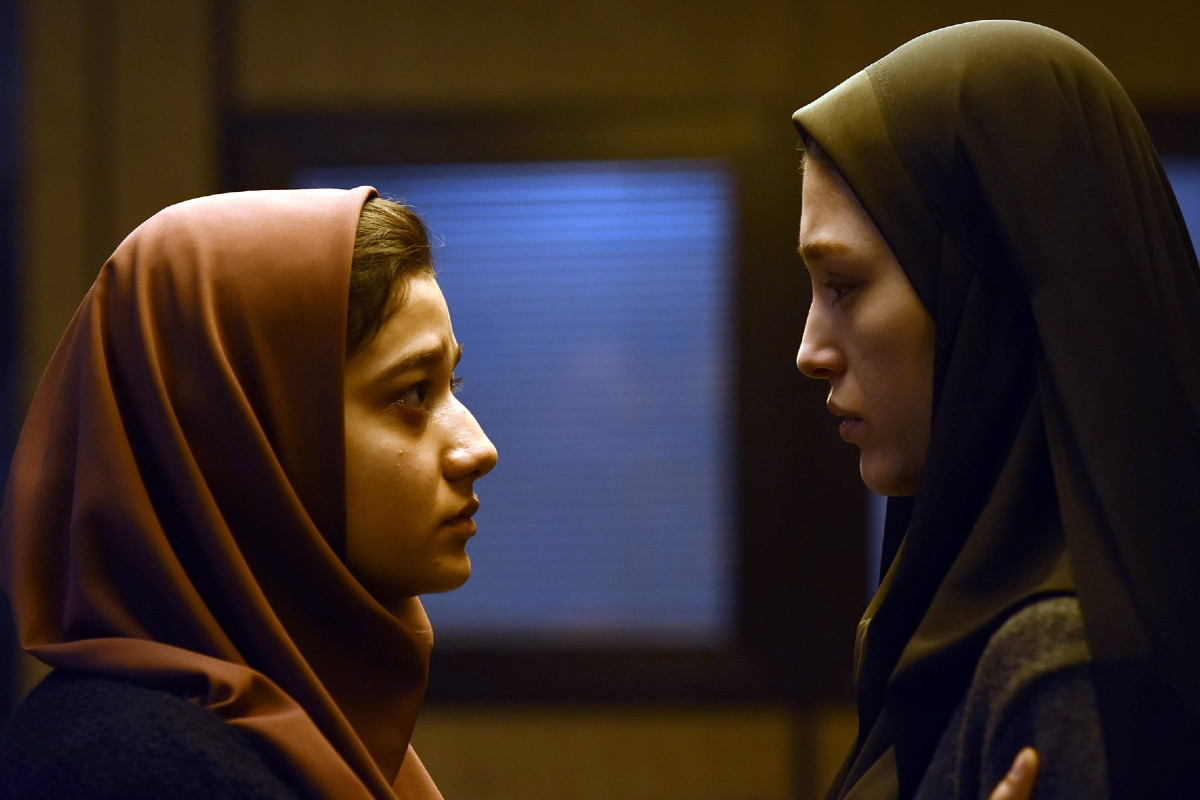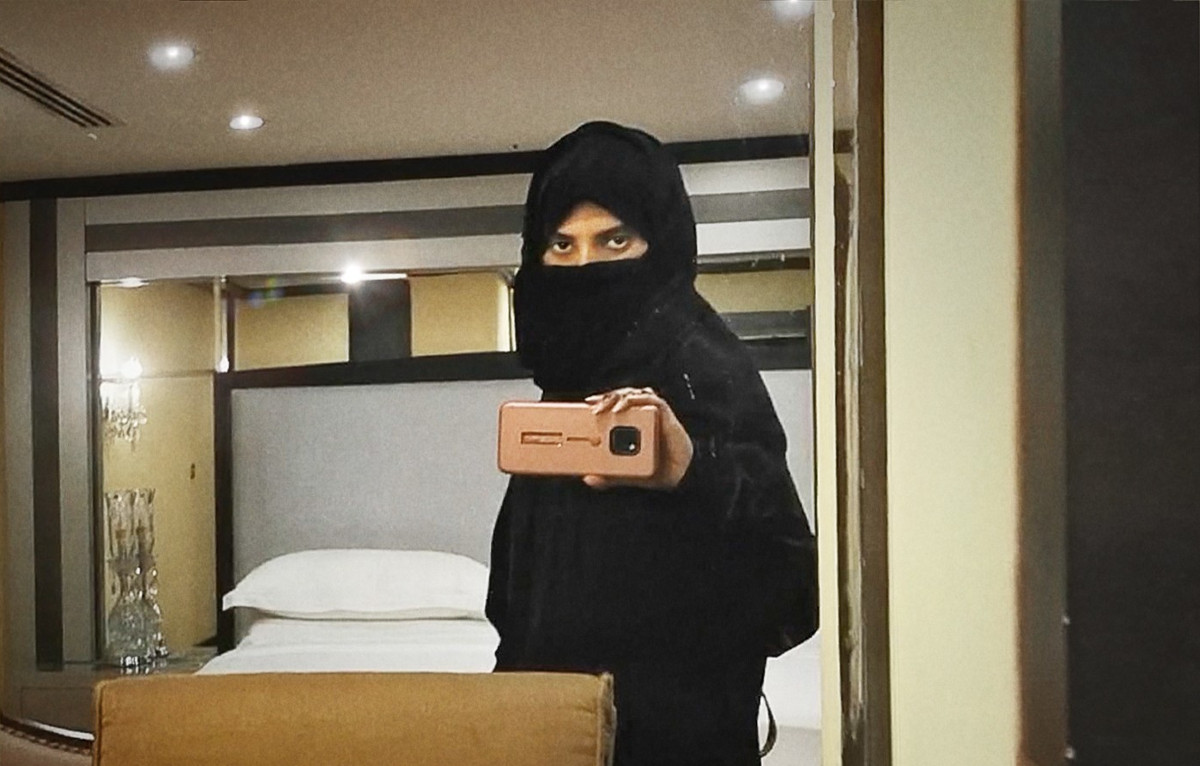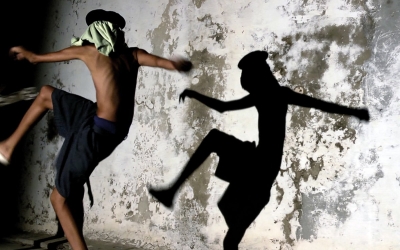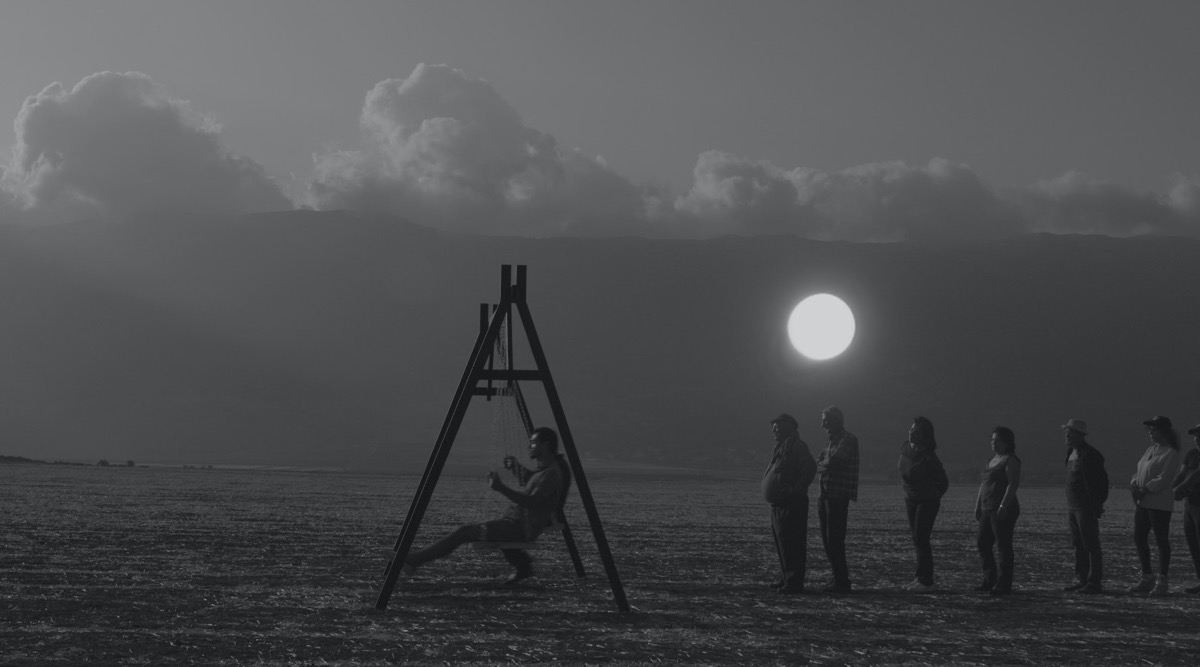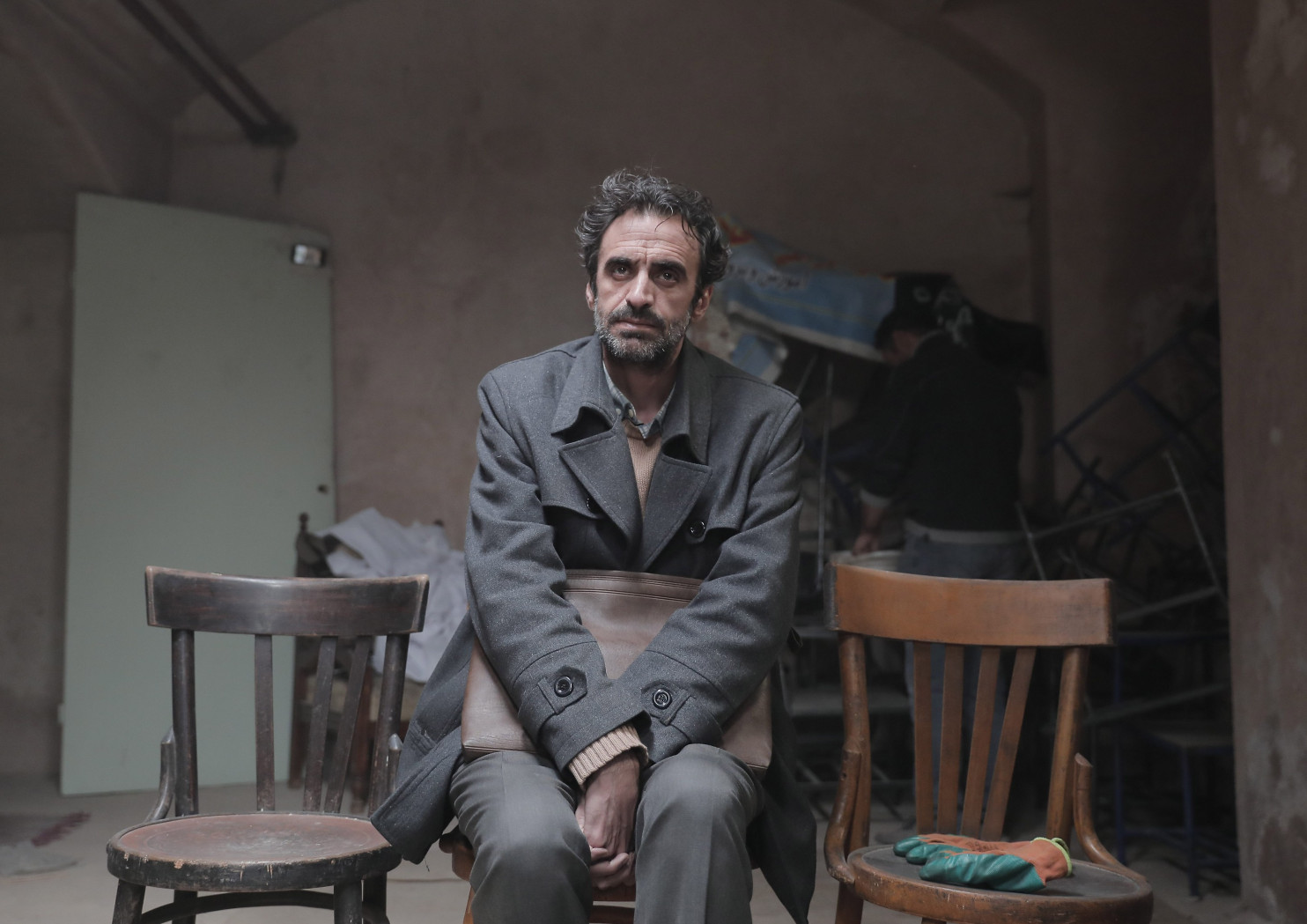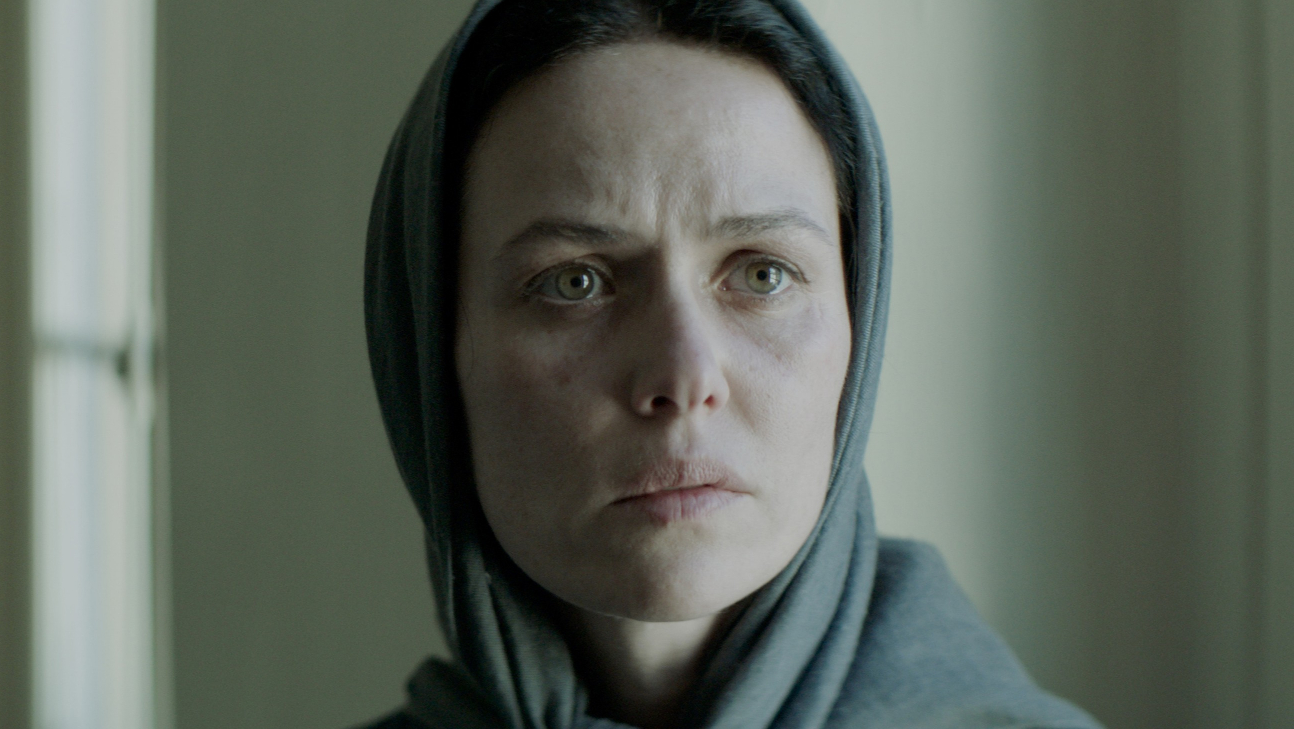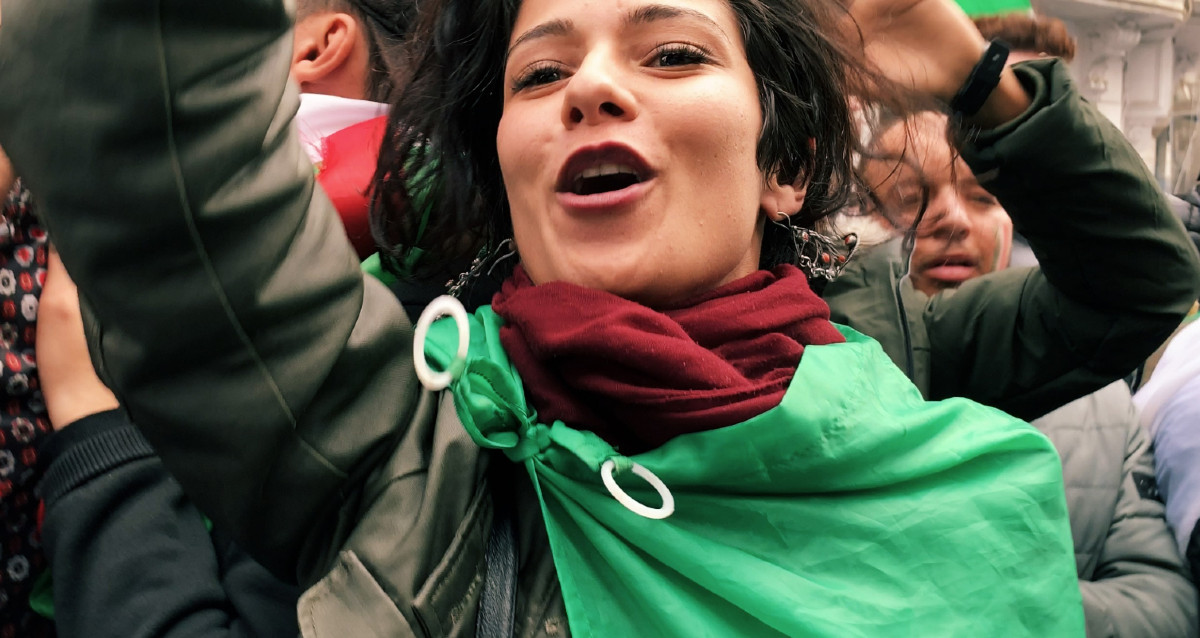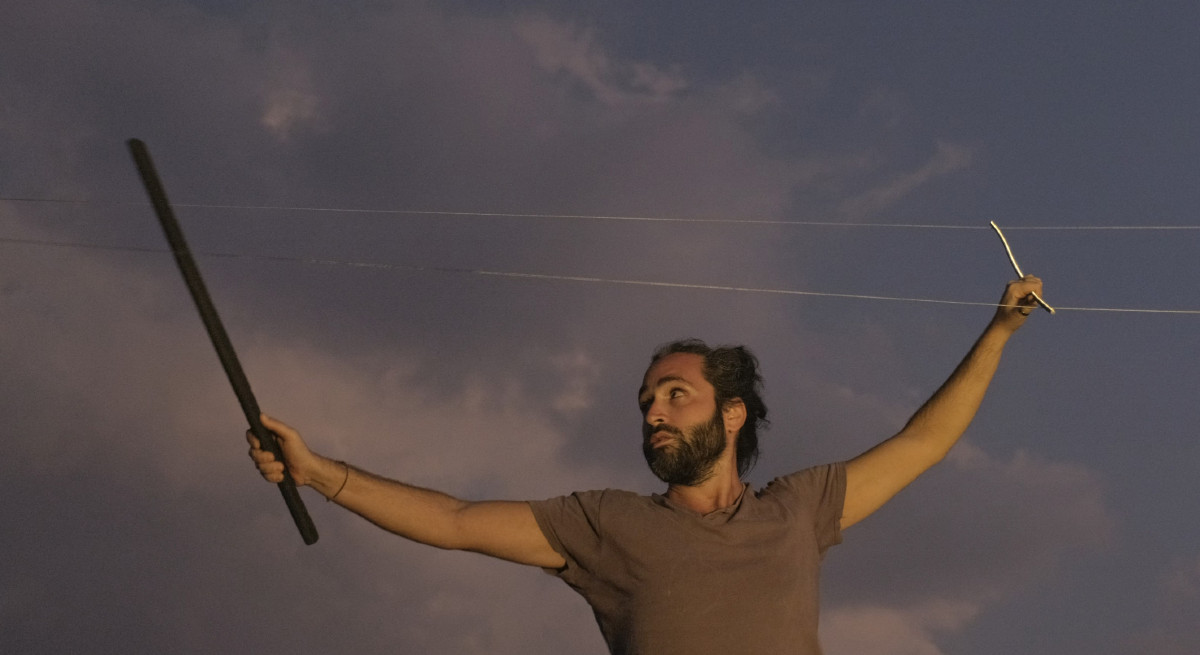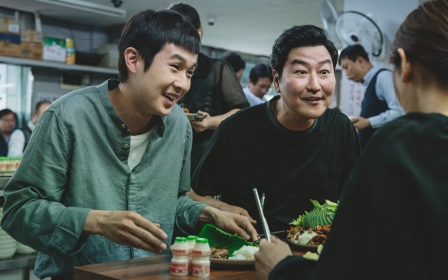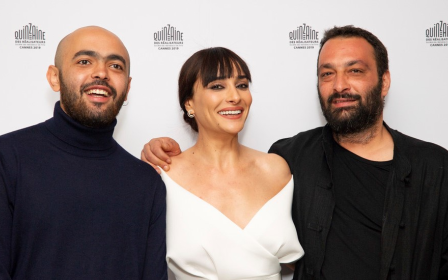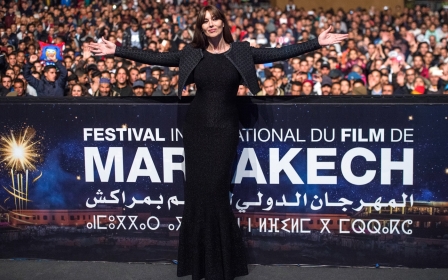How Iranian cinema triumphed at the Berlin Film Festival
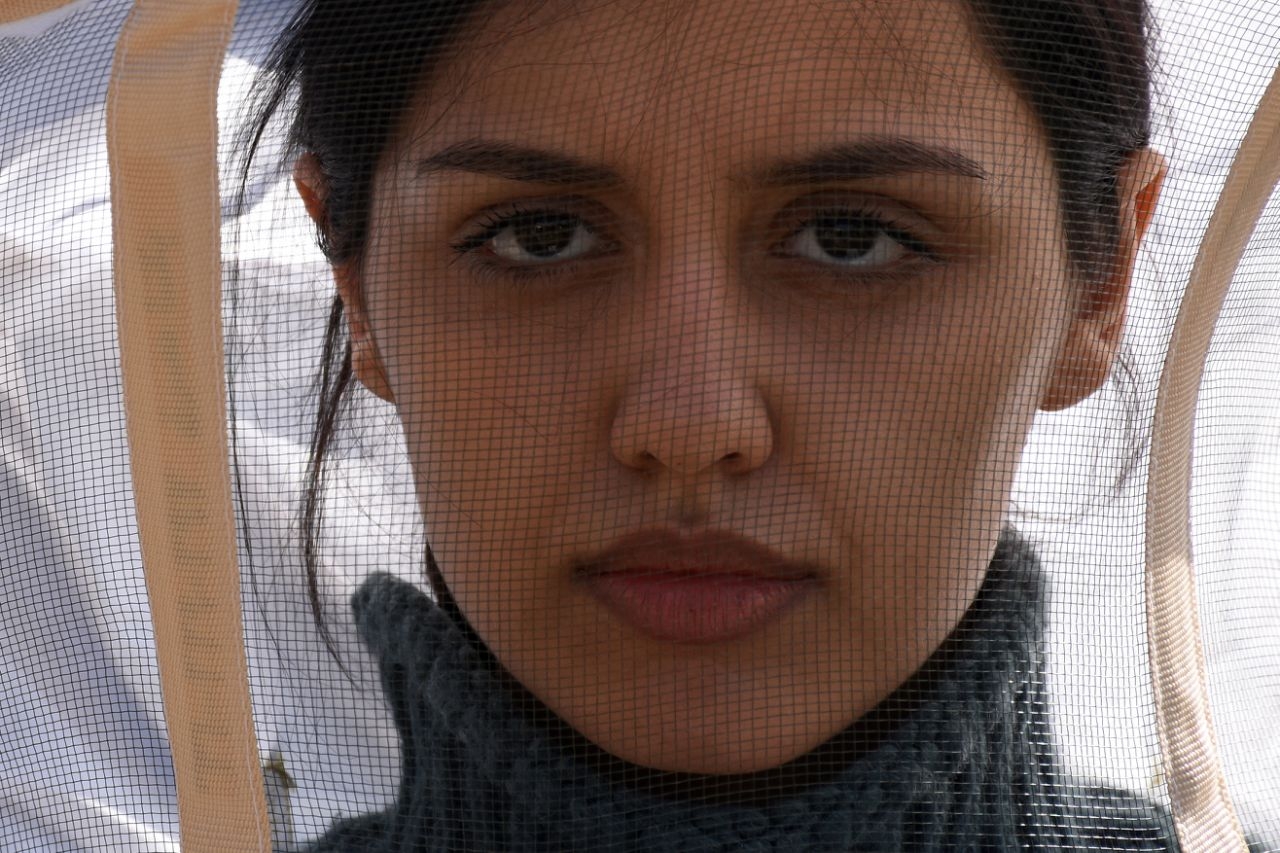
This year’s Berlin Film Festival (aka Berlinale) was not the thunderous comeback that the industry perhaps hoped for under its new team. But after a shaky start, one of the world’s biggest and oldest cinema events finished with a bang, unveiling several envelope-pushing gems, not least from the Middle East.
Foremost of these was There Is No Evil (Sheytan Vojud Nadarad), the most daring Iranian film in years and winner of the Golden Bear, the event’s top prize. But it came at a heavy cost to its director Mohammad Rasoulof: banned from travelling to Germany, just days after his Berlin success he was struck by a one-year prison sentence for what the Iranian authorities dubbed as creating “propaganda against the system”.
His latest ordeal will at least boost the film’s profile while Rasoulof's own will be elevated into the league of the world’s revered auteurs. Further major awards recognition is guaranteed.
Rasoulof’s prize was the centrepiece of a festival where Iranian cinema made a major comeback. Turkish films were notable by their absence, while Arab cinema was more muted, with only one Arab feature - Karim Ainouz’s Algerian documentary Nardjes A. (2019) - in the official selection.
New MEE newsletter: Jerusalem Dispatch
Sign up to get the latest insights and analysis on Israel-Palestine, alongside Turkey Unpacked and other MEE newsletters
Several productions were not ready in time, while high-profile ones may head for Cannes instead – should it not be cancelled due to coronavirus.
Berlin turns a corner
The change in direction for the festival’s 70th edition saw new artistic director Carlo Chatrian and executive director Mariette Rissenbeek take over from former chief Dieter Kosslick after 19 years.
Under Kosslick, the Berlinale became overly political, losing ground to Cannes and Venice, its immediate rivals. Its selection became bloated, with extra sections and more titles with every passing year. As a result the quality of the programming dipped, leading major distributors to baulk from submitting their films.
For critics, programmers and distributors, it became impossible to cover every title, most of which eventually received little, if any, coverage, and suffered a modest festival life.
Expectations were high, given Chatrian’s transformative work at the Locarno International Film Festival, positioning it as a geographically diverse hub for discovering the latest in world cinema. For Berlin he brought in key members of his Locarno team, restructured various sections and eliminated others.
Despite a shaky start and copious misgivings, this year’s festival was nothing but a success, and the best curated incarnation this writer has covered in 10 years
The new Berlin team were hit with setbacks from the get-go including fewer screens, disruption to the city’s transport system and the redevelopment of commercial sites used by festival crowds. There were also controversial comments by jury chair Jeremy Irons, on gender politics, and revelations about collaboration between the festival’s founder Alfred Bauer and the Nazi regime, after who one of Berlin’s prizes was named (it’s been re-named).
Yet despite a shaky start and copious misgivings, this year’s Berlinale was nothing but a success and the best curated incarnation this writer has covered in 10 years. It brimmed with new-found urgency, ambition and artistic audacity, thanks to a more subtle approach and more focus on storytelling, while making major political statement with its awards.
The new configuration also yielded a more compact line-up, although the gamble did not entirely pay off. Weaknesses included the lack of accessible mainstream fare that attracted non-festival audiences and failing to inject Berlinale with the kind of glamour every festival requires.
Yet Chatrian has set the Berlinale in the right direction: whether he can restore the event’s years-long squandered reputation – and by extension create a better platform for the MENA features and industry - remains to be seen. Certainly this year’s choices from the region, as evidenced below, give hope for the future.
There is No Evil
Iranian director Mohammad Rasoulof was last seen in Cannes with his Un Certain Regard winner A Man of Integrity (2017), a morally complex drama that boldly explored the complicity of the individual in a system of oppression.
There Is No Evil, his eighth feature, is also his biggest production to date: an anthology of four stories that collectively act as a staunch indictment of both capital punishment in Iran and the sadistic law that forces young men to execute convicted criminals as part of their mandatory service, without which they can’t apply for a passport or a job.
An epic tapestry shot mostly in widescreen, There Is No Evil investigates, without judgment, the ethical choices every man must make, in various roles, to sustain a blindly merciless system.
Different in tone and scope from its predecessor, not all the episodes hit the mark: the second, which sees a young soldier attempt a far-fetched escape from his base, is especially weak. But collectively they comprise a fierce mosaic of a cannibalistic system that punishes disconformity with banishment and disenfranchisement.
Ironically, Rasoulof himself has fallen victim to some of these themes. Aside from his current sentence, in 2011 he was sentenced to six years and given a 20-year ban from filmmaking following the release of his Cannes winner, Goodbye, which tackled censorship and freedom of expression. His sentence was later revoked, but he then had his passport confiscated in 2017 after promoting A Man Of Integrity at the festival in Telluride.
The Viewing Booth
With The Viewing Booth, Israeli director Ra’anan Alexandrowicz delivers a thought-provoking enquiry into how we consume images of conflicts and what kind of impact these images have.
In a video lab, the director presents Maia Levy, a pro-Israel American student, with two sets of footage: one, produced by B'Tselem, the Israeli-based pro-Palestine NGO, documents violations committed by the Israelis against the Palestinians in the occupied territories; the other set is generated by pro-Israel media.
Alexandrowicz asks one simple task of Levy: to reflect outwardly on what she sees. Six months after their first encounter, the director then asks Levy back, this time to watch and reflect on her recorded reactions.
During the first viewing, Levy initially takes the images on face value, showing sympathy towards the physical abuses committed against the Palestinians. But she then begins to question the validity of what she is watching, airing her doubts about the pro-Palestinian independent media. Six months after she comes back, her initial sympathies with the pro-Palestine videos are diminished: Levy’s doubts have fully taken over.
Alexandrowicz has spent the vast majority of his career exposing the gruelling truths of the Israeli occupation. Through The Viewing Booth, his encounter with Levy materialises into a moment of reckoning; a self-reflective scrutiny of the purpose and real influence of the images he has been creating for nearly quarter-of-a-century.
Can conflict images genuinely convert, or at least sway, an already prejudiced viewer? Or are the likes of Alexandrowicz simply preaching to the converted? “Maybe when we question what we see, it reinforces what we believe in,” Levy says, in the starkest moment of the film. “Maybe B'Tselem is actually helping me.” More than any other film during this year’s Berlinale, The Viewing Booth questions the festival’s previous self-righteous political direction.
Yalda: A Night for Forgiveness
The most entertaining Iranian film at Berlin was Massoud Bakhshi’s Sundance winner Yalda: A Night for Forgiveness. Arriving after its premiere at Sundance in January, it highlights Iran’s rising obsession with TV and the loss of privacy in the digital age.
Maryam (Sadaf Asgari) is a poor young woman on death row for murdering her much older husband and former employer. She then gets the chance to appear on reality TV and plead for a pardon from Mona (Behnaz Jafari), her former sister-in-law, which will save her from execution. At the same time, phone lines open to allow the TV audience to donate the blood money needed to pay off the murder victim’s sister and save Maryam.
Bakhshi craftily evokes the claustrophobic TV setting to deliver a biting criticism of class, muddled social justice, and the dehumanising and numbing impact of TV culture.
Tense and gripping for the most part, Bakhshi shies away from complicating the relationship of the young woman with the resentful daughter which would have benefited from more darkness. The twist that changes the dynamic of their relationship is also quite implausible and difficult to fully digest.
Saudi Runaway
The most contentious feature with a Middle Eastern subject at Berlin was not directed by a filmmaker from the region. Saudi Runaway, by German documentarian Susanne Regina Meures, has garnered accolades since it bowed at Sundance in January, thanks mainly to the growing (if justified) critical sentiment towards the ruling Saudi authorities. It has been picked up by National Geographic for distribution in the US.
The documentary has a simple, straightforward premise: Muna, a young Saudi woman, oppressed by her ultra-conservative father and forced into an arranged marriage, plots to elope to Germany during her honeymoon.
Proceedings are strictly seen from the viewpoint of Muna, with the faces of her family members pixelated to protect their privacy – pointless, since all associates of her family in Saudi Arabia should know what has happened by now. Shot entirely on cellphone by Muna, she is the main author of her story - but herein lies the problem.
Neither Muna nor Meures – who seems fixated on repressed Middle Eastern subjects as suggested by her previous documentary, Raving Iran (2017) about the electronic music scene of Tehran – give any context to what is fundamentally a video diary, instead grounding the story in a dangerous subjectivity that does a disservice to both Muna and the subject at hand.
Meures gives no information regarding the cultural, social or economic background of her protagonist, who gradually transpires into no more than a wannabe Instagram star striving for the western dream. One cannot undermine Muna’s plight, nor can we trivialise her legitimate desire for freedom. Yet she never seems ambitious, showing no plans for perusing higher education or seeking freedom in work.
At one point, Muna claims that Saudi Crown Prince Mohammad Bin Salman has been pushing for more social reforms, but that society at large remains too conservative to heed his call. Such a statement discloses Muna’s limited educational and cultural awareness which, no matter how oppressive her father may be, points towards a self-inflicted lack of interest in politics and culture.
At the end, Meures relates that more than 100,000 women flee Saudi Arabia every year, and that its human rights abuses are among the worst in the world. The Muslim holy land is one of the most traditional societies in the world, but in making such general statements, Meures undermines the great efforts of many female activists in fighting for freedom in the kingdom.
Muna, at one point, claims that she’s not only fleeing to save herself, but to inspire other Saudi women. But given the number of female activists who continue to languish or have been tortured in prison under MBS, her efforts do not feel as heroic as her director makes them out to be.
As Above, So Below
Sarah Francis’ As Above, So Below (Kama Fissamaa’ kathalika ala al-Ard) makes for a hypnotic contemplation on the growing schism between the physical inner and outer spaces as embodied by the Moon.
Devoid of narrative, this Lebanese piece surveys the various connotations of the moon – the mythical, the poetic, the scientific, the political – through visual motifs which include texts designating the satellite’s diverse definitions; audio snippets from US politicians about the space race; and a staged panoramic view of a group waiting for their turn on a swing, in a sparse, disorienting space that looks similar to the Moon’s surface.
Some of these sequences overstay their welcome; others grow repetitive. But this is a sensitive, mature work; poetic, playful, and cynical, Francis demystifies the myth of the Moon and how it is commodified by governments and corporations.
Francis’ last film, Birds of September (2013), remains one of the outstanding Arab documentaries so far this century; As Above, So Below cements her reputation as one of the most original, most unpredictable voices in the MENA film scene.
The Alien
In Nader Saeivar’s The Alien (Namo), Bakhtiyar (Bakhtiyar Panjeei), a teacher, is transferred to the Kurdish-speaking region of Iran. But he struggles to settle in as demands for moral compromises arise at the same time as his father’s activist past begins to haunt him.
Saeivar’s debut, which was co-penned by former Golden Bear winner Jafar Panahi, is a sobering look at the legacy of idealistic politicking. Conceived as a post-modern thriller, the result is a bleak portrait of a society governed by corruption and paranoia.
But while Saeivar is bold in shedding light on one of the most marginalised strata of Iranian society, The Alien is overly grounded in the habitual terrain of social realism, restricting its thriller elements from developing into something more novel.
Pari
The debut feature from the Iranian director Siamak Etemadi, Pari is a dark thriller of sorts about an eponymous Iranian mother (Melika Foroutan) who travels to Athens in search of her lost student son (the film is a Greek-French co-production).
The underbelly of Athens’ night life is juxtaposed with the repressed desires and burning regrets of the eponymous mother who remains largely a cipher throughout. Etemadi imbues the feature with ambiguity, keeping the fate of the son at bay while only hinting at the fraught relationship between parent and child.
The feature’s ending feels abrupt and artificial, and the conclusion is unconvincing. Despite this, his ploy largely works, as the narrative vagueness perfectly matches the mysterious and moody atmosphere.
Nardjes A.
Hot off his Un Certain Regard win at Cannes last year for his epic feminist melodrama The Invisible Life of Euridice Gusmao, Brazilian-Algerian director, Karim Ainouz, changes gears with Nardjes A., a documentary that follows the recent Algerian protests from the viewpoint of the titular young activist.
Ainouz uses his cinematic bravado to capture the addictive commotion, entrancing energy and youthful spirit of the protests through Nardjes, a twentysomething theatre performer, during International Women’s Day on 8 March 2019.
Knowing that it’s too early to offer a profound study of this highly complicated moment, Ainouz anchors his story from the perspective of his protagonist. The result is a snapshot of what the Berlin-based director calls the “Revolution of Smiles” rather than any investigation of one of the most monumental events in recent Algerian history.
Nardjes appears to be largely in charge, choosing what to reveal (or not) about her personal story. She is perceptibly conscious of the camera; even though she sometimes appears disingenuous and overly animated, the aforementioned sense of control she exhibits commendably negates the likelihood of exploitation often seen in similar projects.
The Landing
An art video commissioned by Sharjah Foundation for its recent biennale, the latest folly from conceptual artist and Berlinale regular Akram Zaatari is set in Shaabiyat al-Ghurayfah, a public housing project in Sharjah, UAE, built for Bedouin during the 1980s.
Zaatari – whose art has always been far more convincing than his filmmaking – intentionally strips his imagery from any narrative linage, which is perfectly fine had his images not been so unimaginative, derivative and astonishingly exotic.
Neither a thoughtful probe of man’s relationship with his environment, nor a meditative survey of the intricacies of his landscape, The Landing (Al-Houbut) fails to evoke both the multi-folded mysterious nature of the desert and the architectural uniqueness of Shaabiyat al-Ghurayfah. The unfolding simple performative gestures, including a man emerging from a giant empty box, culminate in an unflattering cocoon of every imaginable experimental movie cliche there is.
The result is an unintentional self-parody, reeking with the kind of intellectual lethargy – thankfully - rarely detected in Arab avant-garde cinema any more.
Middle East Eye delivers independent and unrivalled coverage and analysis of the Middle East, North Africa and beyond. To learn more about republishing this content and the associated fees, please fill out this form. More about MEE can be found here.


